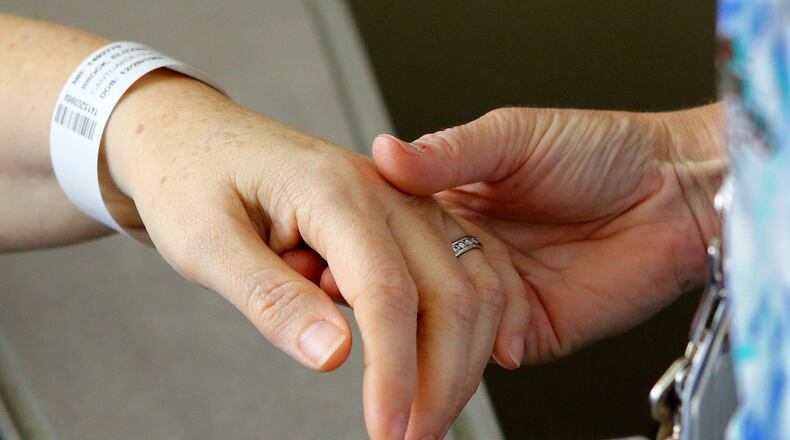Nine members of the Georgia congressional delegation sent a letter to the Food and Drug Administration Thursday seeking answers to questions on cancer drugs that have been in shortage for months.
The shortage, brought to a head by the shutdown of a large manufacturing plant in India, could harm patients because doctors have been forced to change treatment plans. “Providers at cancer centers have started to alter treatment programs and delay preferred therapies due to limited drug availability,” the letter states.
As doctors turned to other drugs, that in turn has caused a shortage of those other drugs in a domino effect, the lawmakers wrote.
“Many of these drugs are kind of the core backbone for treatments that have high cure rates,” Dr. William Dahut, chief scientific officer of the American Cancer Society, told The Atlanta Journal-Constitution. “So they’re drugs that, if not available, potentially substituted, could really decrease an ability to cure a patient.”
According to a report from Bloomberg News, the current U.S. shortage of cisplatin, a generic chemotherapy drug, started at the beginning of the year when Intas Pharmaceuticals, the company that makes much of the country’s supply, shut down a factory in India due to deficiencies at the plant. Soon after, carboplatin, another chemotherapy drug that can sometimes be used as a substitute, fell into short supply.
The FDA subsequently allowed imports of the cancer drug from China, from Qilu Pharmaceutical, whose version of the drug is unapproved in the U.S.
Georgia’s elected officials are asking the FDA how it’s working to reopen the production plant in India and how the agency is ensuring drugs imported from other countries meet U.S. standards. They also asked how Congress could address the root causes of drug shortages, “particularly those affecting chemotherapy drugs, so that in the future, the closure of one manufacturing plant will not affect half of the U.S. supply of a critical drug?”
A major part of the problem is that many of these drugs may be useful, but are generic and so have a low profit margin, Dahut said. So private drug companies don’t prioritize making them like patients and doctors prioritize wanting them.
The FDA said in a response to the AJC that it would reply to the lawmakers directly. The agency said that it carefully assesses the quality of overseas products to make sure they’re acceptable for U.S. use. It also laid out steps it had taken to address the ongoing drug shortages.
“The FDA must work quickly to assist in resolving shortages of chemotherapy drugs and ensure that the United States is better equipped to address drug shortages in the future,” the senator and Congress members wrote.
“Cancer hospitals in Georgia are currently tracking several drugs other than cisplatin as limited in supply, including carboplatin, fludarabine, fluorouracil, methotrexate, dacarbazine, idarubicin and Bacillus Calmette-Guérin (BCG),” the letter states. “Georgia cancer patients and their doctors deserve to choose treatment based on best evidence and what works for the patient without the additional burden of worrying about the availability and safety of drugs.”
Since the shortages first peaked earlier this year, they have eased some, Dahut said. But there is still a problem. What’s more, he said, of the 15 cancer drugs currently on the FDA shortage list, 9 are used for children.
The solutions are not easy, Dahut said, and involve not only the economics of drugmaking as a business but regulators and Congress. “The core root of these problems is not solved by importing some drugs from China for a short period of time,” Dahut said. “We need we need ongoing solutions.”
The letter was signed by U.S. Sen. Raphael Warnock, U.S. Reps. Rick Allen, R-Evans, Sanford Bishop, D-Albany, Buddy Carter, R-Pooler, Hank Johnson, D-Lithonia, Barry Loudermilk, R-Cassville, Lucy McBath, D-Marietta, Rich McCormick, R-Suwanee, and Austin Scott, R-Tifton, according to a copy provided by Warnock’s office.
About the Author
Keep Reading
The Latest
Featured


